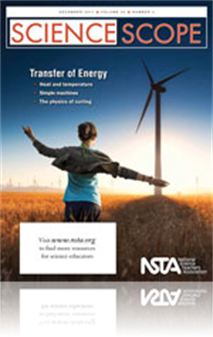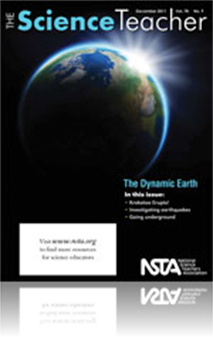All Resources
Journal Article
Studying the Olympic sport of curling is a fun, engaging way to learn about the concepts of friction, forces, momentum, and Newton's laws. Students enjoy and benefit from hands-on, experiential learning activities, and sports show students how they c...
Journal Article
Investigating Continental Margins
In this article students investigate North America's continental margins using GeoMapApp, a free global topography database. Each student investigates continental margins along the East, West, and Gulf Coasts, determines the nature of these margins, ...
Journal Article
The Green Room: Global Environmental Issues
This column focuses on making your teaching more environmentally friendly. This month’s issue presents several global environmental issues and suggests a classroom activity for each....
Journal Article
The New Teacher's Toolbox: Teaching With Current Events
This column shares tips for teachers just beginning their career. In this month’s issue the author emphasizes that everyday science events can provide plentiful connections to classroom science content....
Journal Article
Idea Bank: An Environmentally Responsible Physics Course
The Idea Bank provides tips and techniques for creative teaching, in about 1,000 words. This month’s Idea Bank discusses emphasizing energy in an introductory physics course....
Journal Article
Science Shorts: One Hungry Dinosaur
This column provides classic classroom activities that emphasize science process skills. In this month’s issue the author discusses using dinosaur models and pictures to help students understand the role of animal body parts and their adaptation to...





